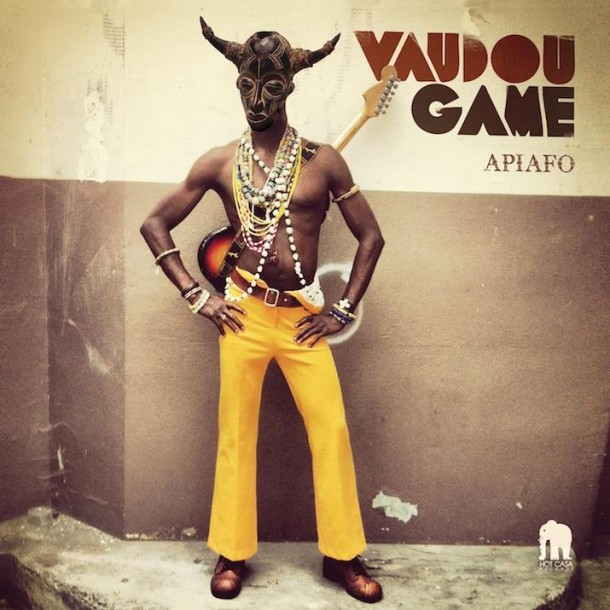Peter Solo is a singer and composer born in Aného-Glidji, Togo, the birthplace of the Guin tribe and a major site of the Voodoo culture. He was raised with this tradition’s values of respect for all forms of life and the environment.
Specific to this region of Africa is the use, during vaudou rituals, of characteristic lines that differ from everything one may hear in neighbouring cultures.
The idea of integrating these haunting lines, sung in honor of the Divinities, to an energetic 70’s Afro-funk was an obvious extension in Peter Solo’s mind of the analogy he found between this vaudou tradition and trance inducers such as Blues, Funk, as well as the Rythm’n Blues of James Brown, Otis Redding and Wilson Picket.
Peter Solo heard this new sound coming through him and named it Vaudou Game. With his new band, Peter Solo claims, and spreads this spiritual and musical heritage. Chants are at the heart of the Voodoo practice, but for times immemorial, harmonic instruments have never accompanied them. No balafon, no kora – only the “skins” support the singers. However, in 2012, Peter, along with his band based in Lyon, France, decided to explore and codify the musical scales that are found in sacred or profane songs of Beninese and Togolese Voodoo so they can be played easily on modern instruments. Peter composed the album Apiafo, using the two main musical scales of this tradition.Among the fruits of the convergence between African and Afro-American musicians, there is one lesser-known genre that hails from the cradle of vaudou culture in Togo, Benin, and whose key figures, Poly-Rythmo of Cotonou, Dama Damawuzan, or El Rego, have, since the 1970’s, had their popularity confined to afro-groove fans.
The first musical scale on Apiafo leans towards raw Funk with a sound similar to the famous 70’s bands, L’Orchestre Poly Rythmo De Cotonou and El Rego. Funk, is the skeletal structure of this record, and provided the opportunity for Peter to invite his uncle, Roger Damawuzan – the famous pioneer of the 70s Soul scene – on two tracks. Their collaboration on “Pas Contente” is a highlight on this 100% analog album. Apiafo was entirely recorded, mixed and mastered with old tapes and vintage instruments.
The second scale, which had never before been transposed for instruments, evokes deeper feelings and a sacred ambiance. The moving song Ata, an invocation to a supreme divinity is another highlight of this record. Even if some can recognize similarities between this scale and Ethiopian scales, they are in fact different. Peter, the only African band member, introduced the other musicians to the universal values of Voodoo and he taught them his native language. On the recording of Apiafo and during their live performances, the musicians all sing and answer Peter in the Mina language. The strive for authenticity, the analog sound and vintage looks don’t mean that Vaudou Game is looking backwards. This is Togolese funk, born in the post-colonial era but that never before explored its ancient roots so deeply and proudly.

